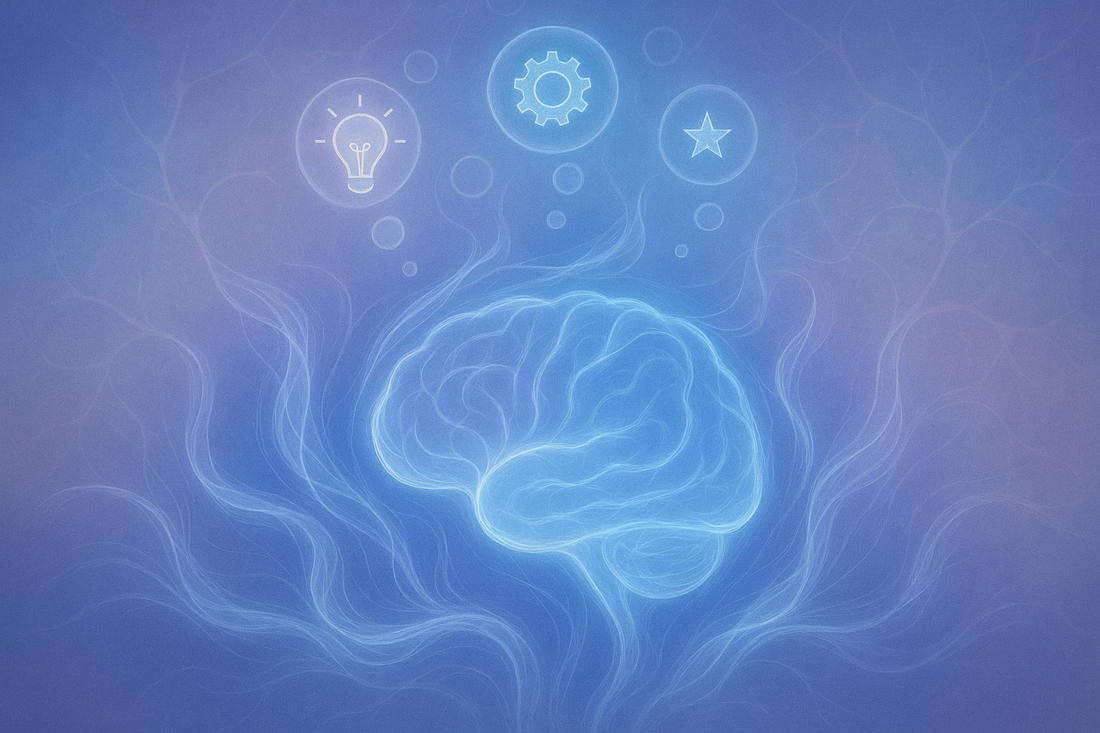
The Secret Life of Unspoken Thoughts
Ever walked away from a conversation thinking, “Why didn’t I say that?”
You're not alone. Our minds are bustling with activity—neuroscientists estimate that the brain generates tens of thousands of thoughts daily, yet only a small fraction are ever spoken aloud. In fact, some studies suggest we voice less than 1% of what passes through our mental stream. The rest? They linger quietly, influencing our emotions, creativity, and well-being.
The Hidden City of the Mind
Imagine your inner world as a glowing city at night. Behind every window, life unfolds—conversations, stories, quiet moments. Yet, from the outside, only a few lights shine. This mirrors our thoughts: most remain private, unspoken, yet still alive and active.
Why So Many Thoughts Stay Unsaid
The prefrontal cortex—our brain's executive center—acts as an editor, filtering which thoughts are "safe" or "useful" to share. Social norms, self-criticism, or simple overwhelm keep much of our inner dialogue silent. Research on inner speech reveals that we think in words far more than we actually speak—our unvoiced inner monologue is constant, shaping how we interpret life .
The Double Life of Silent Thoughts
Unspoken thoughts aren't wasted. They can:
· Fuel creativity – the "background hum" of thinking allows ideas to incubate.
· Process emotions – even unsaid thoughts are part of how the brain works through stress.
· Weigh us down – chronic suppression of expression can increase stress and impact health .
Ayurveda’s View: The Restless Vata Mind
Ayurveda offers a poetic lens here. Vata dosha—governing movement, air, and space—rules the nervous system and thought flow. When Vata is high, the mind chatters: racing ideas, sleeplessness, unfinished words. Agni, the digestive fire, doesn't only digest food—it also digests thoughts. When Agni is weak, we can't "metabolize" experiences, leaving behind ama (mental toxins), which show up as scattered attention, anxiety, or emotional heaviness.
Releasing the Unspoken
Both science and Ayurveda point toward practices that give space for the unsaid:
· Journaling – shown to reduce stress and improve immune response .
· Meditation & breathwork – calm the Vata mind, strengthening focus and stillness.
· Grounding rituals – warm oils, herbal teas, or simply slowing down help "digest" excess thoughts.
Takeaway
We may never speak 99% of what we think—and that's okay. Some thoughts are seeds that need time, some are best kept private, and some dissolve on their own. But learning to listen, honor, and release them—whether through writing, meditation, or mindful rituals—turns the invisible chatter into wisdom.
Because sometimes, the quietest thoughts are the ones shaping us most deeply.
Disclaimer: This content is for informational purposes only and is not intended as medical advice. Always consult with a qualified healthcare provider before starting any new health or wellness practice.
References
· Alderson-Day B, Fernyhough C. Inner speech: development, cognitive functions, phenomenology, and neurobiology. Psychological Bulletin. 2015;141(5):931–965.
· Goyal M, Singh S, Sibinga EMS, et al. Meditation Programs for Psychological Stress and Well-being: A Systematic Review and Meta-analysis. JAMA Intern Med. 2014;174(3):357–368. doi:10.1001/jamainternmed.2013.13018
· Pennebaker JW. Expressive writing in psychological science. Perspectives on Psychological Science. 2018;13(2):226–229.
· Smyth JM, Stone AA, Hurewitz A, Kaell A. Effects of writing about stressful experiences on symptom reduction in patients with asthma or rheumatoid arthritis: a randomized trial. JAMA. 1999 Apr 14;281(14):1304-9. doi: 10.1001/jama.281.14.1304. PMID: 10208146.
· Guo L. The delayed, durable effect of expressive writing on depression, anxiety and stress: A meta-analytic review of studies with long-term follow-ups. Br J Clin Psychol. 2023;62(1):272–297.
· Tan SB, et al. Mindful gratitude journaling: psychological distress, quality of life, and spiritual well-being in patients with advanced cancer. BMJ Support Palliat Care. 2023;13(e3):e1117–e1125.
· Rogerson O, Wilding S, Prudenzi A, O'Connor DB. Effectiveness of stress management interventions to change cortisol levels: a systematic review and meta-analysis. Psychoneuroendocrinology. 2024 Jan;159:106415. doi: 10.1016/j.psyneuen.2023.106415. Epub 2023 Oct 11. PMID: 37879237.
